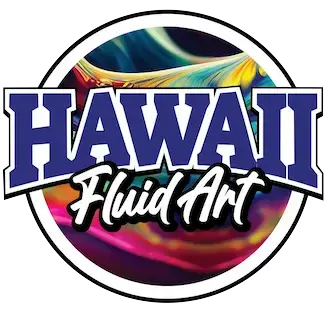Hat Bar: Create Custom Hats with Patches
Aloha and welcome to Hawaii Fluid Art’s Patch Party Hat Bar, where you can design a one-of-a-kind hat that’s as unique as you are! Whether you’re looking for a fun activity with friends, a family-friendly outing, or a creative solo adventure, our Patch Party Hat Bar offers a fun, hands-on experience for all ages. Get ready to mix and match colorful patches to create a custom hat that shows off your style and personality.

Customize Your Style at Our Patch Party Trucker Hat Bar
Looking for a fun, creative, and unforgettable way to celebrate your next event? Hawaii Fluid Art’s Patch Party Trucker Hat Bar is the ultimate destination! Whether you’re planning a birthday party, team-building event, girls’ night out, or just looking for a unique experience, our Hat Bar offers something fresh, exciting, and personalized for everyone.

What Is the Trucker Hat Bar?
How Casimatic Examines Privacy Protection Methods in Gaming
The digital gaming landscape has evolved into a complex ecosystem where millions of players share personal information, financial data, and behavioral patterns across interconnected platforms. As gaming companies collect unprecedented amounts of user data to enhance experiences and monetize services, the protection of player privacy has become a critical concern requiring sophisticated examination and analysis. Understanding how privacy protection methods are evaluated in gaming environments provides essential insights into the balance between innovation and user security in this rapidly expanding industry.
Evolution of Privacy Concerns in Digital Gaming
The gaming industry’s approach to privacy protection has undergone significant transformation since the early days of standalone arcade games and single-player console experiences. Initially, gaming required minimal personal information, with privacy concerns largely centered around high score initials and basic user preferences. However, the advent of online multiplayer gaming in the late 1990s and early 2000s marked a fundamental shift in data collection practices.
Modern gaming platforms now routinely gather extensive datasets including real-time location information, social network connections, spending patterns, gameplay behaviors, voice communications, and biometric data from advanced controllers. This evolution has created new vulnerabilities that require comprehensive evaluation frameworks. The introduction of in-game purchases, social features, and cross-platform connectivity has exponentially increased the volume and sensitivity of data being processed.
Regulatory frameworks have struggled to keep pace with these developments. The implementation of GDPR in 2018 and similar privacy legislation worldwide has forced gaming companies to reassess their data handling practices. These regulations have established new standards for consent mechanisms, data portability, and the right to deletion, fundamentally changing how privacy protection methods must be designed and evaluated in gaming contexts.
Comprehensive Analysis Framework for Gaming Privacy
Effective examination of privacy protection methods in gaming requires a multi-layered analytical approach that addresses technical, legal, and user experience considerations. The framework begins with data mapping exercises that identify all points where personal information enters gaming systems, from account creation and payment processing to behavioral tracking and social interactions.
Technical evaluation focuses on encryption standards, authentication protocols, and data storage security measures. Advanced gaming platforms implement end-to-end encryption for voice communications, tokenization of payment information, and sophisticated access controls that limit employee access to sensitive player data. The analysis examines whether these technical safeguards meet industry best practices and provide adequate protection against both external threats and internal misuse.
User consent mechanisms represent another critical evaluation area. Modern privacy protection analysis examines how gaming companies obtain, document, and maintain user consent for various data processing activities. This includes reviewing the clarity of privacy notices, the granularity of consent options, and the ease with which users can modify their privacy preferences. Effective evaluation considers whether consent processes are truly informed and whether users understand the implications of their choices.
Cross-border data transfer practices require particular scrutiny given the global nature of gaming platforms. Privacy protection evaluation must examine how gaming companies handle data transfers between different jurisdictions, ensuring compliance with varying international privacy standards while maintaining seamless user experiences across geographic boundaries.
Industry Standards and Emerging Technologies
The gaming industry has developed specific privacy protection standards that go beyond general data protection requirements. These include specialized protocols for protecting minors, given the significant portion of underage users in gaming communities. Evaluation frameworks must assess age verification systems, parental consent mechanisms, and special protections for children’s data that comply with regulations like COPPA in the United States.
Emerging technologies present both opportunities and challenges for privacy protection in gaming. Artificial intelligence and machine learning systems used for personalization and fraud detection must be evaluated for their privacy implications. The analysis examines whether these systems process data in ways that respect user privacy while delivering intended benefits. This includes reviewing data minimization practices, algorithmic transparency, and the potential for AI systems to infer sensitive information about users.
Blockchain and distributed ledger technologies are increasingly integrated into gaming platforms, particularly in the context of non-fungible tokens and cryptocurrency-based economies. Privacy protection evaluation must consider how these technologies affect traditional privacy safeguards, examining whether blockchain implementations provide adequate privacy protections or create new vulnerabilities through permanent, public transaction records.
Cloud gaming services represent another frontier requiring specialized privacy analysis. As gaming computation moves from local devices to remote servers, new data flows and processing activities emerge that must be carefully evaluated. This includes examining how cloud gaming providers protect streaming data, handle latency-sensitive processing, and maintain privacy across distributed infrastructure systems.
Assessment Methodologies and Best Practices
Comprehensive privacy protection assessment in gaming employs multiple methodologies to ensure thorough evaluation. Technical audits examine system architectures, security controls, and data flow patterns to identify potential vulnerabilities. These audits often involve penetration testing, code reviews, and infrastructure assessments that simulate real-world attack scenarios.
User experience testing evaluates privacy controls from the player’s perspective, examining whether privacy settings are accessible, understandable, and effective. This includes usability testing of privacy dashboards, consent interfaces, and data subject rights fulfillment processes. Effective evaluation considers whether privacy protections are practical for users with varying levels of technical expertise.
Legal compliance assessment ensures that privacy protection methods meet applicable regulatory requirements across all jurisdictions where gaming services operate. This involves detailed analysis of privacy notice content, consent mechanisms, data retention practices, and breach notification procedures. The assessment must account for the complex patchwork of international privacy laws that affect global gaming platforms.
Continuous monitoring systems provide ongoing evaluation of privacy protection effectiveness. These systems track privacy metrics, monitor for unauthorized data access, and identify emerging privacy risks as gaming platforms evolve. Effective monitoring includes automated detection of privacy policy violations, unusual data access patterns, and potential security incidents that could compromise user privacy.
Third-party vendor assessment represents a crucial component of comprehensive privacy evaluation. Gaming platforms typically rely on numerous service providers for payment processing, analytics, advertising, and technical infrastructure. Privacy protection evaluation must examine how these relationships affect overall privacy posture and ensure that vendor agreements include appropriate privacy safeguards.
The examination of privacy protection methods in gaming represents a critical component of responsible digital entertainment development. As gaming platforms continue to evolve and integrate new technologies, the frameworks for evaluating privacy protections must adapt to address emerging risks while supporting innovation. The most effective approaches combine technical rigor with user-centered design principles, ensuring that privacy protections are both robust and practical. This ongoing evaluation process helps maintain user trust while enabling the continued growth and evolution of digital gaming experiences in an increasingly connected world.
Why Celebrate at Hawaii Fluid Art?
- BYOB-Friendly: Bring your favorite drinks and enjoy a relaxed, social atmosphere while you create.
- Fun for Everyone: Ideal for all ages and skill levels, from kids to adults—no artistic experience required!
- Hands-On Creativity: Our expert instructors guide you through the process, ensuring every guest loves their hat.
- Memorable Experiences: Celebrate special occasions or enjoy a casual outing while creating hats and memories that last a lifetime.
How It Works
- Pick Your Hat:
Start with a blank trucker hat as your canvas. - Design Your Style:
Dive into our wide collection of patches, paints, and embellishments. Choose from trendy, quirky, or classic options to make custom patch hats that stand out. - Create Your Masterpiece:
Guided by our friendly team, bring your vision to life. Add layers, colors, and finishing touches to make your hat uniquely yours. - Celebrate at the Patch Party:
Sip your BYOB beverages as you laugh, create, and connect with your group. It’s more than crafting—it’s a celebration!
Perfect for Any Occasion
The Patch Party Hat Bar is the ideal activity for:
- Birthday Parties
- Bachelorette Parties
- Team-Building Events
- Family Fun Nights
- Just Because!
It’s a great way to add a little island flair to your wardrobe, whether you’re a local or visiting Hawaii.

Why Choose Hawaii Fluid Art?
At Hawaii Fluid Art, we combine creativity with celebration. Our Trucker Hat Bar isn’t just an activity—it’s a chance to connect, have fun, and express yourself in a meaningful way. Whether you’re designing custom patch hats or enjoying a Patch Party, you’ll leave with more than a hat—you’ll leave with memories.
Book Your Patch Party Hat Bar Experience Today
Ready to create, celebrate, and customize your style? Contact us to reserve your spot at the Hat Bar! Your perfect hat—and the memories that come with it—are waiting.
Hawaii Fluid Art: Where creativity meets celebration!


